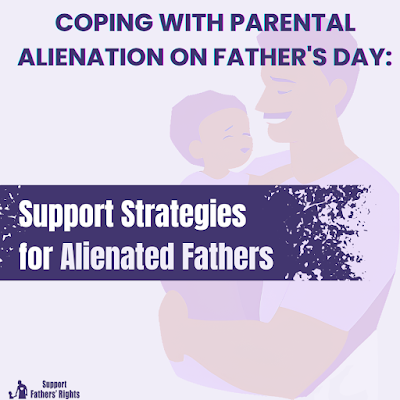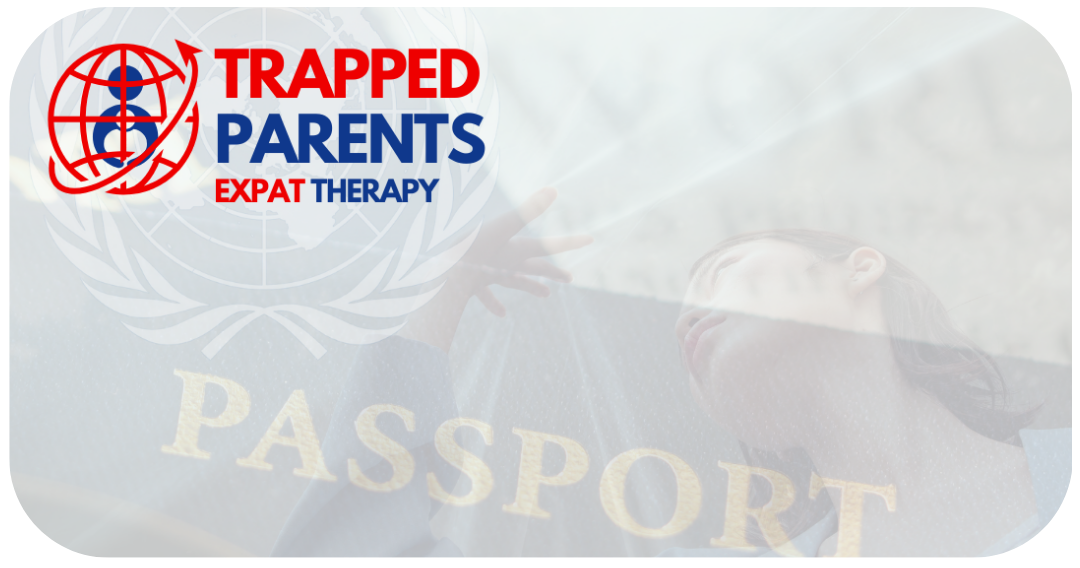Today we explore some of hardships faced by alienated fathers on Father's Day, as well as some ways for alienated fathers to cope on what can be a difficult day.
The Pain of Parental Alienation on Fathers Day
Parental alienation occurs when one parent manipulates a child to reject the other parent without legitimate justification. This manipulation can involve a range of behaviors, including negative statements about the other parent, limiting contact, or undermining the parent-child relationship. Alienated fathers often experience intense emotional suffering due to the unwarranted estrangement from their children. The absence of contact can lead to feelings of grief, depression, and a diminished sense of self-worth.
Father’s Day can amplify these feelings, as social media, advertisements, and cultural norms emphasize father-child relationships. The day can be a stark reminder of what has been lost due to alienation. According to a study by Harman, Leder-Elder, and Biringen (2019), alienated parents, including fathers, report higher levels of depression, anxiety, and stress compared to non-alienated parents. The public and private celebrations of other fathers can intensify the emotional isolation felt by those who are alienated.
The pain of alienation is compounded by societal misconceptions about the phenomenon. Parental alienation is often misunderstood or minimized by those who have not experienced it, leading to a lack of empathy and support for alienated parents. This lack of understanding can make alienated fathers feel even more isolated and invalidated in their experiences.
The Psychological Impact on Alienated Fathers
The psychological toll of alienation on fathers can be profound. Alienated fathers often struggle with feelings of powerlessness and frustration due to their inability to protect and maintain a relationship with their children. This sense of helplessness can contribute to severe mental health issues, including depression and anxiety. Moreover, the loss of a meaningful relationship with their children can lead to a diminished sense of identity and purpose.
Research indicates that the stress associated with parental alienation can have long-term health consequences. Chronic stress is linked to various physical health problems, such as cardiovascular disease, weakened immune function, and gastrointestinal issues. For alienated fathers, the continuous emotional strain of being separated from their children can have a cascading effect on their overall well-being.
The Social Stigma and Isolation of Parental Alienation on Fathers
Alienated fathers often face social stigma and isolation, exacerbating their emotional pain. Society tends to view fathers as secondary caregivers, which can lead to a lack of recognition and support for their emotional needs. This societal bias can make it challenging for alienated fathers to find understanding and validation for their experiences.
Additionally, the legal and social systems often fail to provide adequate support for alienated fathers. Custody battles and legal proceedings can be drawn-out and emotionally draining, with fathers frequently feeling that their concerns are not taken seriously. This lack of support can lead to further isolation and disillusionment with the systems meant to protect family relationships.
Strategies for Coping on Father’s Day for Alienated Fathers
Despite the profound challenges, there are strategies that alienated fathers can employ to cope with the emotional pain of Father’s Day. Here are some practical ways to manage the day and seek support:
1. Reach Out for Support:
Connecting with friends, family members, or support groups who understand your situation can provide emotional relief. Talking about your feelings with others who empathize can lessen the sense of isolation.
❤️💪 Father's Day Celebration & Support Group:
If you are interested in joining our Father's Day Celebration and Support Group on.June 16th at 11AM US Eastern Time:
Add the Meeting to your Calendar (ICS) or Google Calendar
to save your spot on the video meeting at http://bit.ly/fathers-day-support
2. Engage in Self-Care:
Prioritize activities that promote your physical and mental well-being. Exercise, meditation, hobbies, and other forms of self-care can help alleviate stress and improve your mood.
3. Create New Traditions:
Develop new traditions or rituals that bring you joy and a sense of fulfillment. This could include spending time with other loved ones, volunteering, or engaging in activities that you enjoy.
4. Seek Professional Help:
Consider consulting with a therapist or counselor who specializes in family dynamics and parental alienation. Professional guidance can provide coping strategies and emotional support.
5. Focus on Personal Growth:
Use this time to focus on personal development and growth. Pursue goals, learn new skills, or engage in activities that enhance your sense of self-worth and accomplishment.
6. Write Letters to Your Children:
Even if you cannot send them, writing letters to your children can be a therapeutic way to express your love and thoughts. This can serve as a positive outlet for your emotions.
7. Limit Exposure to Social Media:
Social media can amplify feelings of sadness by showcasing others' celebrations. Consider limiting your exposure to social media on Father’s Day to protect your emotional well-being.
8. Participate in Support Groups:
Join support groups for alienated parents, either online or in-person. Sharing your experiences with others who understand can provide comfort and practical advice.
9. Volunteer or Give Back:
Volunteering can be a fulfilling way to spend Father’s Day. Helping others can provide a sense of purpose and distract from the pain of alienation.
10. Practice Mindfulness and Meditation:
Mindfulness and meditation can help manage stress and emotional pain. These practices can promote a sense of calm and presence, reducing the impact of negative emotions.
11. Engage in Physical Activity:
Exercise releases endorphins, which can improve mood and reduce stress. Whether it’s a walk, run, or workout session, physical activity can be a valuable coping mechanism.
12. Focus on the Positive Aspects of Fatherhood:
Reflect on the positive moments you’ve had with your children, even if they are in the past. Celebrating these memories can bring some joy and comfort.
13. Create a Memory Book:
Compile photos, letters, and mementos that remind you of your children. Creating a memory book can be a constructive way to honor your relationship with them.
14. Engage in Creative Outlets:
Expressing yourself through art, music, or writing can be a powerful way to process and cope with emotions. Creative outlets can provide a sense of accomplishment and relief.
15. Plan a Future Activity with Your Children:
If possible, plan an activity or event that you can look forward to with your children in the future. Having something to anticipate can provide hope and positivity.
16. Practice Gratitude:
Focusing on aspects of your life for which you are grateful can shift your mindset and improve your emotional state. Keeping a gratitude journal can help you recognize and appreciate the positives.
17. Connect with Nature:
Spending time in nature can have a calming and restorative effect. Whether it’s a hike, visit to a park, or simply sitting outside, nature can provide a sense of peace.
18. Educate Yourself on Parental Alienation:
Understanding the dynamics and psychological aspects of parental alienation can empower you to navigate the situation more effectively. Knowledge can be a powerful tool for coping and advocacy.
19. Limit Negative Thoughts:
Challenge and reframe negative thoughts that contribute to feelings of despair. Cognitive-behavioral techniques can help you manage and reduce negative thinking patterns.
20. Celebrate Yourself:
Take time to acknowledge and celebrate your role as a father, despite the challenges. Recognize the love and effort you have put into your relationship with your children.
Father’s Day can be an exceptionally challenging time for alienated fathers. The emotional pain and societal stigma associated with parental alienation can make this day particularly difficult. However, by employing coping strategies and seeking support, alienated fathers can navigate the complexities of Father’s Day with resilience and hope.
Remember, you are not alone, and there are resources and communities available to support you through this journey.

















0 Comments